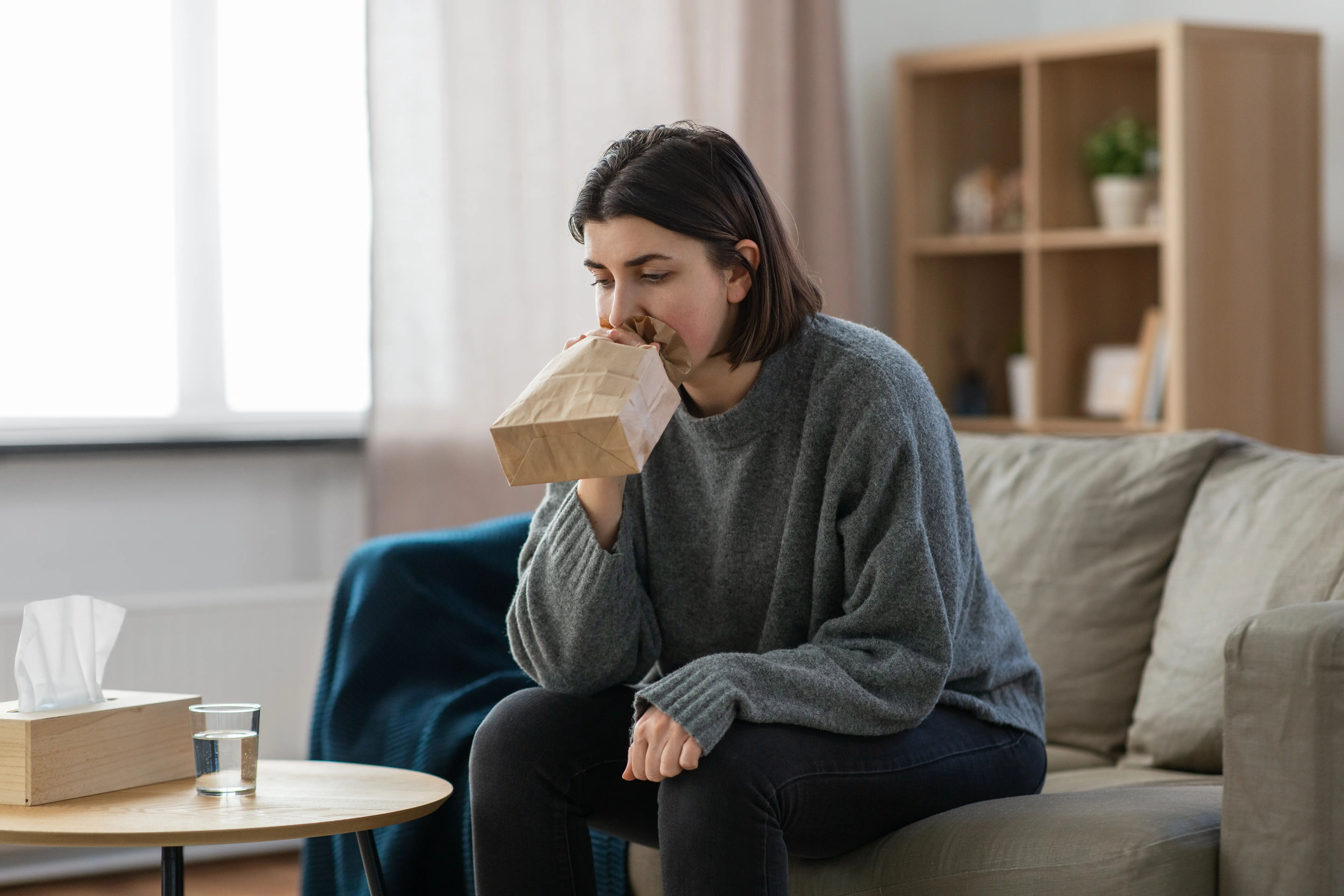Understanding Panic Attacks and Panic Disorder
Learn about panic attacks and panic disorder, including their symptoms, triggers, and impact on daily life. Discover effective treatment options and coping strategies to manage and reduce episodes.

Written by Dr. J T Hema Pratima
Reviewed by Dr. Dhankecha Mayank Dineshbhai MBBS
Last updated on 13th Jan, 2026

Introduction
Panic attacks and panic disorder can be overwhelming and frightening experiences. If you or someone you know has ever felt sudden, intense fear without any obvious reason, you might have experienced a panic attack. This article aims to help you understand what panic attacks and panic disorder are, their symptoms, causes, and how to manage them effectively.
What Are Panic Attacks?
A panic attack is a sudden episode of intense fear or discomfort that peaks within minutes. It can happen unexpectedly, even when you’re relaxed or asleep. Panic attacks are not life-threatening, but they can feel terrifying, often making people think they’re having a heart attack or losing control.
Consult a Psychiatrist for the best advice
Common Symptoms of a Panic Attack
Panic attacks can cause both physical and emotional symptoms, including:
- Rapid heartbeat or palpitations
- Shortness of breath or feeling like you’re choking
- Chest pain or discomfort
- Dizziness or lightheadedness
- Sweating or chills
- Trembling or shaking
- Nausea or stomach distress
- Fear of losing control or "going crazy"
- Fear of dying
These symptoms usually last for about 10–20 minutes but can vary in intensity and duration.
What Is Panic Disorder?
While occasional panic attacks can happen to anyone, panic disorder is a type of anxiety disorder where a person experiences recurrent, unexpected panic attacks along with persistent worry about having more attacks. People with panic disorder may also avoid situations where they fear an attack might occur, which can interfere with daily life.
How Panic Disorder Affects Health
Living with panic disorder can be exhausting. The constant fear of another attack can lead to:
- Avoidance behaviors (skipping work, social events, or public places)
- Increased stress and anxiety
- Sleep disturbances
- Depression due to feeling helpless
- Physical health issues like high blood pressure from prolonged stress
What Causes Panic Attacks and Panic Disorder?
The exact cause isn’t fully understood, but several factors may contribute:
1. Genetics
- A family history of panic disorder or anxiety may increase risk.
2. Brain Chemistry
- Imbalances in neurotransmitters (like serotonin and GABA) that regulate mood and fear responses can trigger panic attacks.
3. Stress and Trauma
- Major life changes, chronic stress, or past traumatic experiences can make someone more prone to panic attacks.
4. Medical Conditions
- Certain conditions (like thyroid disorders, heart disease, or respiratory issues) can mimic or trigger panic-like symptoms.
5. Substance Use
- Caffeine, alcohol, nicotine, or drug withdrawal can sometimes provoke panic attacks.
How to Manage Panic Attacks and Panic Disorder
While panic attacks can feel uncontrollable, there are ways to manage and reduce their frequency.
1. Breathing Exercises
Slow, deep breathing can help calm your nervous system during an attack. Try the 4-7-8 technique:
- Inhale for 4 seconds
- Hold for 7 seconds
- Exhale for 8 seconds
2. Grounding Techniques
Focusing on your surroundings can help bring you back to reality. Try the 5-4-3-2-1 method:
- Name 5 things you can see
- 4 things you can touch
- 3 things you can hear
- 2 things you can smell
- 1 thing you can taste
3. Lifestyle Changes
- Reduce caffeine and alcohol – They can trigger or worsen anxiety.
- Exercise regularly – Physical activity helps reduce stress and improve mood.
- Get enough sleep – Poor sleep can increase anxiety.
4. Cognitive Behavioral Therapy (CBT)
- A therapist can help you identify and change negative thought patterns that contribute to panic attacks.
5. Medication (If Needed)
- In some cases, doctors may prescribe antidepressants or anti-anxiety medications to help manage symptoms.
When to Seek Help
If panic attacks are frequent, interfere with daily life, or cause extreme distress, it’s important to seek professional help. You don’t have to go through this alone; support is available.
Final Thoughts
Panic attacks and panic disorder can be challenging, but they are manageable with the right strategies and support. Remember, seeking help is a sign of strength, not weakness. With proper care, many people overcome panic disorder and lead fulfilling lives.
Consult a Psychiatrist for the best advice
Consult a Psychiatrist for the best advice

Dr. Ankit Halder
Psychiatrist
7 Years • MBBS,MD(PSYCHIATRY)
Kolkata
Serenity Mindcare (A Neuropsychiatry Clinic), Kolkata

Dr. Jyotsna Vanka
Psychiatrist
8 Years • MBBS,MD-PSYCHIATRY
New Delhi
AARUNYA MENTAL HEALTH CENTRE, New Delhi

Dr. Varsha Mahadik
Psychiatrist
11 Years • MBBS,DNB-PSYCHIATRY
Gurugram
The Lifestyle Clinic Gurgaon, Gurugram
(50+ Patients)

Dr. Richa Kumari
Psychiatrist
10 Years • MBBS, DPM (Psychiatrist)
Bangalore
Apollo Clinic Bellandur, Bangalore
(175+ Patients)

Dr. Sanjoy Roy
Psychiatrist
7 Years • MBBS, DPM (CIP Ranchi)
Kolkata
The Hope and Care clinic, Kolkata
Consult a Psychiatrist for the best advice

Dr. Ankit Halder
Psychiatrist
7 Years • MBBS,MD(PSYCHIATRY)
Kolkata
Serenity Mindcare (A Neuropsychiatry Clinic), Kolkata

Dr. Jyotsna Vanka
Psychiatrist
8 Years • MBBS,MD-PSYCHIATRY
New Delhi
AARUNYA MENTAL HEALTH CENTRE, New Delhi

Dr. Varsha Mahadik
Psychiatrist
11 Years • MBBS,DNB-PSYCHIATRY
Gurugram
The Lifestyle Clinic Gurgaon, Gurugram
(50+ Patients)

Dr. Richa Kumari
Psychiatrist
10 Years • MBBS, DPM (Psychiatrist)
Bangalore
Apollo Clinic Bellandur, Bangalore
(175+ Patients)

Dr. Sanjoy Roy
Psychiatrist
7 Years • MBBS, DPM (CIP Ranchi)
Kolkata
The Hope and Care clinic, Kolkata



